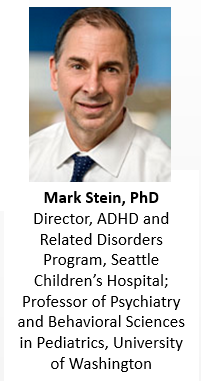ADHD in Parents and Families: What We Know Now
It has been known for many years that ADHD runs in families. Twin, family, and adoption studies indicate that ADHD is common in first-degree relatives of children with ADHD, including many parents. In contrast to children with ADHD whose difficulties in school or at home lead to an ADHD evaluation, parental ADHD is much less likely to be detected if it has been missed previously. ADHD in adults can be easily misdiagnosed as another problem, sometimes the result of longstanding, untreated ADHD, such as substance use and demoralization. The problem of recognition compounded as there is much less awareness of ADHD among health and mental health providers who treat adults, since for years ADHD was viewed primarily as a pediatric condition. Until recently, there have been few studies to guide treatment of ADHD in parents, although it is also been established that parental ADHD can have a negative impact on behavioral parent training, a frequent first line treatment for ADHD in children.
Andrea Chronis-Tuscano and I began a series of studies investigating the effects of treating mothers with ADHD about 10 years ago. We first studied the effects of long-acting stimulant medications on maternal ADHD, and observed improvements in mothers’ ADHD symptoms and some improvements in parenting (e.g. there were fewer reports of corporal punishments at higher doses) (Chronis-Tuscano et al., 2008) (Chronis-Tuscano & Stein, 2012).
More recently, a large multisite study examined the impact of treating maternal ADHD with either 12 weeks of multimodal treatment consisting of methylphenidate and group psychotherapy or 12 weeks of clinical management (i.e., less intensive supportive counselling) prior to receiving 12 weeks of parent-child training (Jans et al., 2015). Multimodal treatment of ADHD in mothers was associated with improvements in maternal ADHD and mental health in general, however children whose mothers were treated with 12 weeks of supportive counseling displayed the same level of improvement in behavior as children whose mothers received multimodal treatment that included maternal stimulant medication. In this study, three-quarters of the child participants were already receiving stimulant medication, which may have reduced the potential for detecting effects of treating ADHD mothers on children who were already being treated (Stein, 2015).
Several years ago, we began a study of mothers with ADHD who have young children at risk for ADHD due to genetics and environment, with ADHD symptoms, who have not yet started treatment. This study, “Mothers First”, is testing whether treating mothers with ADHD first, with either stimulant medication or parent training, not only helps mothers, but also improves parenting and reduced or delays the need for medication in the child (Chronis-Tuscano, Wang, Strickland, Almirall, & Stein, in press). We are in the last year of the study at Seattle Children’s hospital, which is aimed at mothers with suspected ADHD who have 3-7 year olds with ADHD symptoms who are not taking ADHD medications. As part of the study, mothers and children are evaluated for ADHD and receive study treatments and monitoring. In addition, we are now beginning an extension study with fathers with ADHD, “Father too”. In this study, fathers will be treated with 8 weeks of stimulant medication or behavioral parent training. In this our first study with fathers, we look forward to comparing our experience with mothers to ADHD treatment and measuring the impact on parenting and on young children with ADHD.
We know now that ADHD is common in parents, and that treatment can make a difference in terms of reducing parents’ ADHD symptoms. We also know that pediatric and mental health providers seldom identify ADHD in parents, and that there is a paucity of adult providers trained in ADHD management. Consequently, it is often challenging to find providers who can treat parents with ADHD. Through our research, we hope to increase awareness of parental ADHD and learn how best to sequence treatment and differences between ADHD in a mother and father and how that relates to treatment of the child with ADHD. Eventually, we will recognize an ADHD family disorder that is not focused exclusively on the child or childhood years.
Chronis-Tuscano, A., Seymour, K. E., Stein, M. A., Jones, H. A., Jiles, C. D., Rooney, M. E., . . . Robb, A. S. (2008). Efficacy of osmotic-release oral system (OROS) methylphenidate for mothers with attention-deficit/hyperactivity disorder (ADHD): preliminary report of effects on ADHD symptoms and parenting. The Journal of Clinical Psychiatry, 69(12), 1938-1947. Retrieved from http://www.ncbi.nlm.nih.gov/pubmed/19192455
Chronis-Tuscano, A., & Stein, M. A. (2012). Pharmacotherapy for parents with attention-deficit hyperactivity disorder (ADHD): impact on maternal ADHD and parenting. CNS drugs, 26(9), 725-732. doi:10.2165/11633910-000000000-00000
Chronis-Tuscano, A., Wang, C. H., Strickland, J., Almirall, D., & Stein, M. (in press). Personalized Treatment of Mothers with ADHD and Their Young At-Risk Children: A SMART Pilot. Journal of Clincal Child and Adolescent Psychology.
Jans, T., Jacob, C., Warnke, A., Zwanzger, U., Gross-Lesch, S., Matthies, S., . . . Philipsen, A. (2015). Does intensive multimodal treatment for maternal ADHD improve the efficacy of parent training for children with ADHD? A randomized controlled multicenter trial. Journal of Child Psychology and Psychiatry, and Allied Disciplines. doi:10.1111/jcpp.12443
Stein, M. A. (2015). Does helping mothers with ADHD in multiplex families help children? Reflections on Jans et al Journal of Child PSychology and Psychiatry, 56, 1314-1315.
